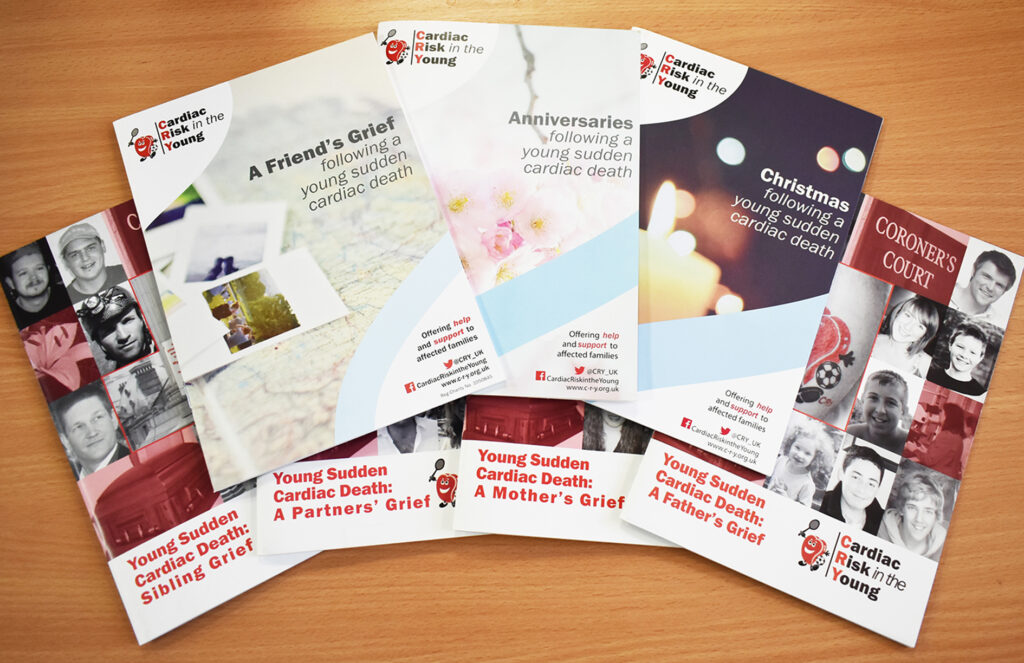From the CRY Update magazine issue 85, this column is written by CRY Founder Alison Cox MBE.
The impact on the family after a young sudden cardiac death can be devastating and unpredictable.
For Bruce Lord, himself the youngest of seven children, he found it stretched cruelly to his mother who could not come to terms with still being alive when her oldest grandchild was not.

Bruce says: “the only thing I can think to say after losing a child to young sudden cardiac death is that nothing could prepare you for the impact it has on the family. The effects are so diverse. The feelings of isolation can be massive and makes us all deal with it in our own ways. Not all of them healthy. I can’t even think of how much better life would be for us all if we hadn’t lost Rachael.”
Children respond differently to such a crisis – and not only because of their character but their age too. Sometimes a younger child will be found comforting an older sibling.
Children might feel they have to be tough and conceal their feelings, but their courage needs to be carefully watched as they can be supremely good at hiding their emotions. Older children can feel they are responsible for a younger sibling, but also are often desperate to comfort their mother.
As children mature they will change too.
Managing the impact on the family is a massive challenge for Mum and Dad, who themselves are both desperately trying to come to terms with the catastrophic effect it has had on the whole family, as well as their own grief.
Grief is a slippery vestibule. It is an ante-room for the purpose of waiting. An infliction of terrible sadness that has to be accepted as something to live with and is never likely to ever go away.
Children not only have different characters but the development of their character is influenced by many things. Grief can have a harsh impact and every child is likely to feel different, on different days, with different people, at different times.
For parents it is a nightmare. A maze that they have to walk through on tiptoe, alert to mood swings. There are external events that have to be confronted, whilst always remembering their child is in the process of developing, learning, feeling.
Grief is a cruel master for parents trying desperately to cope with their own emotions at this time. Emotions burn energy and having the strength to shield their own suffering from their child/children requires significant fortitude. Understanding each other’s feelings, expressing them to each other whenever possible, creating opportunities for the family to be together and hear what each other feel will relieve the burden. Children can often say the wisest things if encouraged to do so and will become safe expressing their own sadness to others in the family if they feel listened to.
There is no limit on love – or grief. Sharing both with softness and patience will inspire confidence in their children’s ability to live with the deep sadness that has afflicted their family.

CRY has developed a series of booklets which contain personal stories from bereaved mums, dads, siblings, partners and friends. We have also developed two additional booklets, one focusing on the Christmas period and the other on anniversaries following a young sudden cardiac death.
You can order any of these booklets for free or read them online here.





